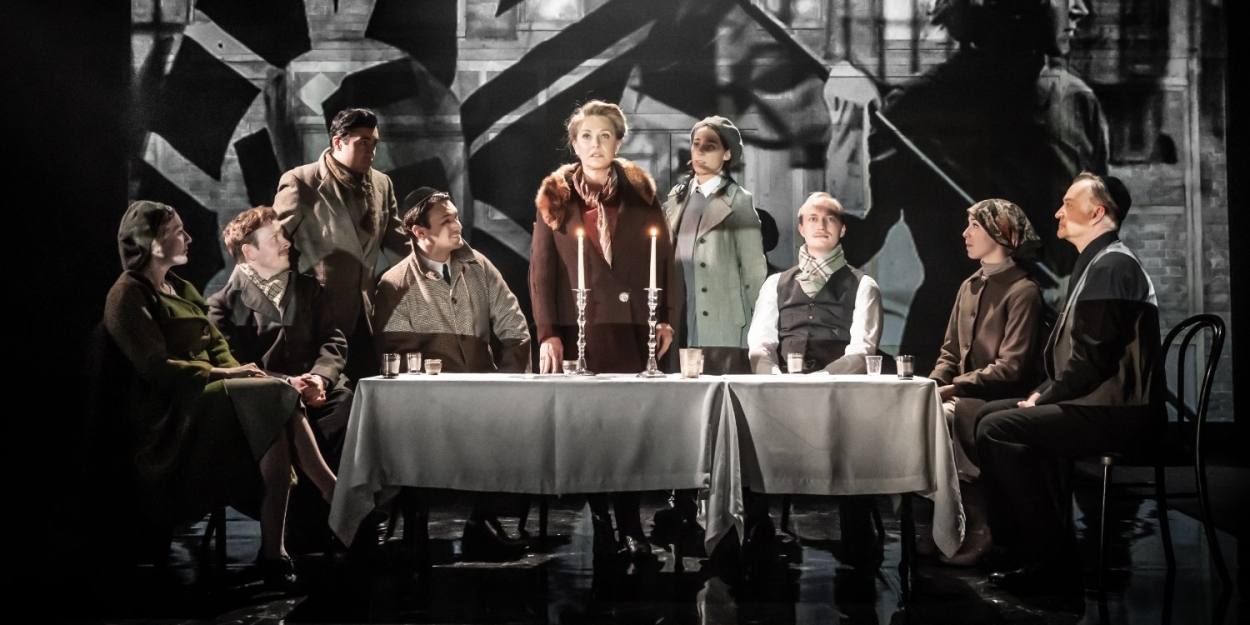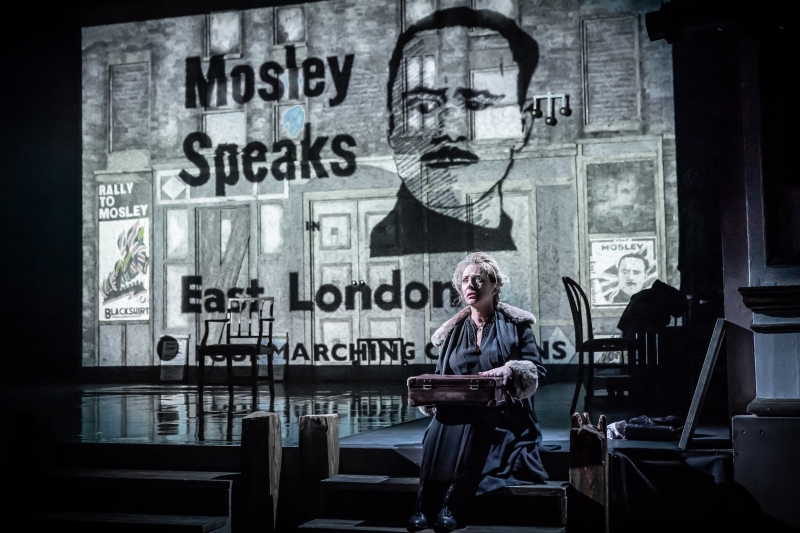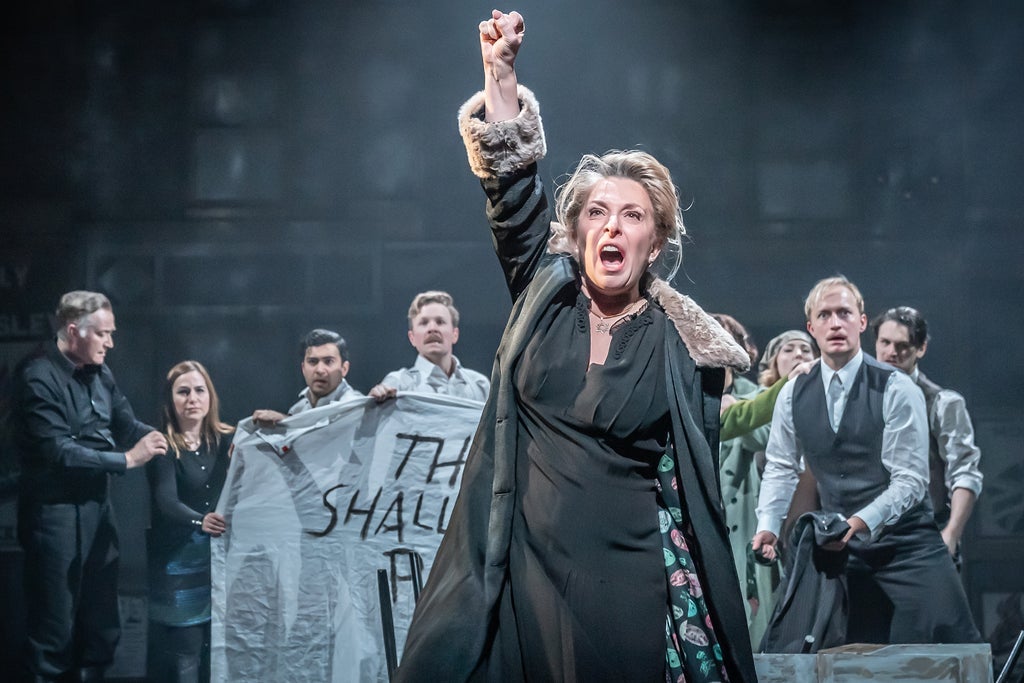Review: THE MERCHANT OF VENICE 1936, Trafalgar Theatre
This powerful new production embarks on a UK tour.

![]() Oswald Mosley’s Blackshirts are getting a foothold in London’s East End. Shylock, here a single parent, requests a pound of flesh from Antonio, part of Mosley’s aficionados, in order to clear his debts. The demands of the Jewish moneylender who’s endlessly abused in public by the same people who require her services immediately gain further nuance in Brigid Larmour and Tracy-Ann Oberman.
Oswald Mosley’s Blackshirts are getting a foothold in London’s East End. Shylock, here a single parent, requests a pound of flesh from Antonio, part of Mosley’s aficionados, in order to clear his debts. The demands of the Jewish moneylender who’s endlessly abused in public by the same people who require her services immediately gain further nuance in Brigid Larmour and Tracy-Ann Oberman.
With its blunt and uncompromising take on Shakespeare’s questionable story of Jewishness and social power, this is probably the only way you can present a problematic play in this day and age. It self-flagellates and promotes a chilling transactional analysis across three time periods (the 16th century, the rise of the fascist party in Great Britain, and now).
Oberman might be top billed, but her concept for Merchant is the star of the show. Shylock’s normally controversial thirst for vengeance becomes a fair response to the open hatred she undergoes daily. Antonio, dressed in black, lifts his arm in a Nazi salute the moment he appears on stage. It's all downhill from there: posters are stuck on Shylock’s home and the men gradually start displaying red armbands with Mosley’s ominous thunderbolt. Larmour’s direction contextualises everything carefully in a meticulous work of de- and re-construction of the original text.

Projections (Greta Zabulyte) wash over the tableaux vivants during the scene changes, a foolproof approach that increases the stakes with real headlines from the mid-30s. “The ancient grudge” isn’t excused nor exploited, it’s presented in a way that questions the very core of Shakespeare’s play. Shylock is an East End matriarch, proud of her heritage and fearless in her stance against the unfairness she experiences. A true highlight in Oberman’s performance hits after she discovers Jessica (Gráinne Dromgoole) has rejected her faith and fled with Lorenzo (Mikhail Sen): we’re introduced to a heartbroken, frightened mother who’s desperately trying to find her child. It adds a powerful layer to the character.
Poised but fiery in her rage, she stares down Joseph Millson’s Antonio chillingly any chance she gets. He gives it right back to her. Hair slicked back and towering over everybody, Millson is an intense and intimidating observer. There’s a curious, nearly imperceptible, blink-and-you-miss-it, one-way homoerotic interest between him and Bassanio (Gavin Fowler) that deepens the exploration of Antonio’s enmity, emboldening his animosity with a dose of potential closetedness for good measure. Millson also takes on the role of the Prince of Arragon, one of Portia’s suitors, the sole genuinely comic spot in this tense production.

Another famous antisemite, Portia (Georgie Fellows), is a snobbish aristocrat that wouldn’t have looked out of place alongside the Mitford sisters. Larmour and Oberman reframe her by not letting the denouement of the piece rest on her shoulders. After the courtroom scene and the taunting of the husbands, the creative team flips the script one more time, pushing the characters into the Battle of Cable Street. The fascists strip off their uniform jackets becoming their Jewish counterparts in a message of resistance and unity.
Through all this, Rory Beaton’s stark lighting design accompanies the action with vibrant, evocative colours that concentrate the energy, tightening the visuals and adding tension to the project. This version of The Merchant of Venice proves that Shakespeare can be a springboard for an exceptionally specific discussion; it lays all the objections on the table and doesn’t afford any shade of doubt about what we’re analysing. Yes, it can be a little on the nose in spelling out its ambitions, but sometimes it's better not to leave anything up to interpretation.
The Merchant of Venice 1936 runs at Trafalgar Theatre until 25 January before embarking on a UK tour.
Photo Credits: Marc Brenner



